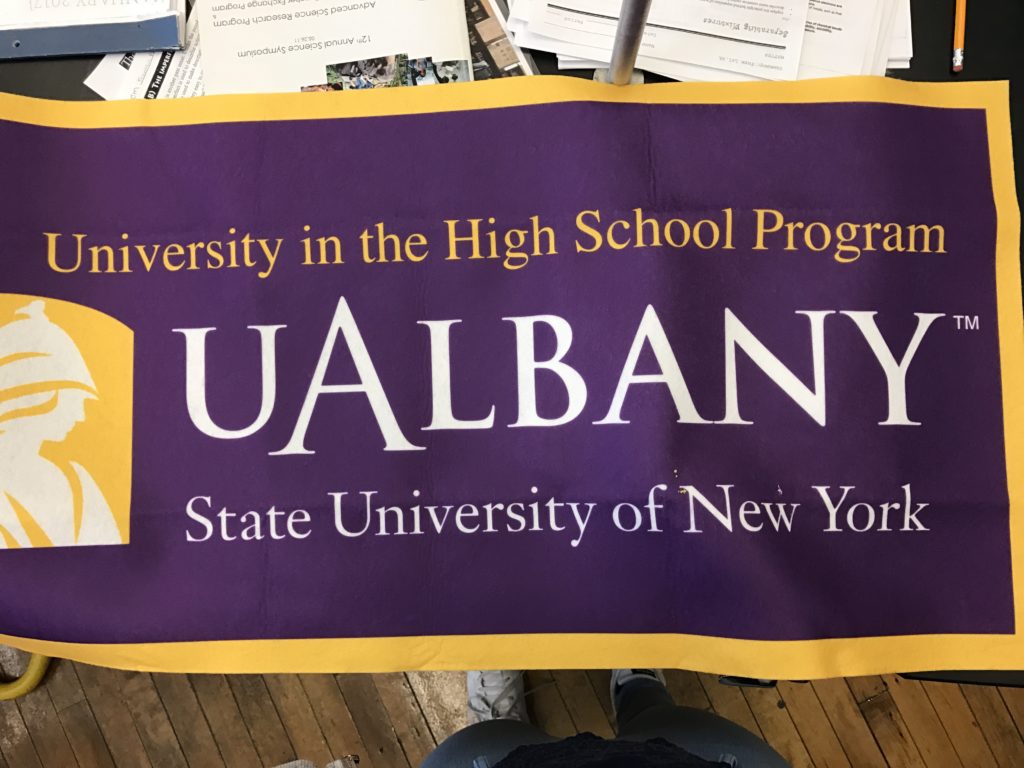By Shumaya Islam
The Advanced Science Research Program (better known as ASR) is an important academic option at MCSM. However, when I asked fellow students about the program it seemed to me that many students were not aware of any insider details. By interviewing Fariha Syeda, a second-year ASR student and also a fellow classmate, I was able to discover more about this rigorous course held for students interested in preparing for careers in the sciences after high school.
Q: Before anything else, can you clarify what Advanced Science Research is?
A: It is an elective that you apply for freshman year. It is a three-year program and you must go out and do research outside of your comfort zone. The basis is that students must explore and find a mentor, and then participate in conducting research under their guidance. Usually a mentor is a professor at a university or college, or a professional researcher. At the end of the three years, students present their research.
Q: How are students selected to become an ASR student?
A: Students apply towards the middle of freshman year, and must attend an orientation. After attending the orientation, they must fill out an application that includes an essay. Only a certain number of students get called out for an interview and only 15 get accepted to the program.
Q: What is the end goal for an ASR student?
A: It’s an opportunity to get a first-hand experience working on research projects before [seeking] higher education.
Q: How does a typical school day vary for an ASR student?
A: ASR students have zero-period starting at 7:30AM, then continue their day as on their [regular] schedule. We also have a bi-weekly meeting every two weeks, discussing any updates with the teacher.
Q: Knowing that you are a second-year student, how are the responsibilities for a second-year student different from a first-year student?
A: First-year students have a much lighter schedule. However, second-year students should be able to take on more responsibility towards their work, knowing what they were taught during their first-year.
• • •
(Prior to doing this interview, I wanted to know if students in our school knew anything about ASR. For those who did, it was interesting to hear the same responses from several students about the essential purpose of this program. Below are Fariha’s responses, that portray the reality of being an ASR student.)
Q: What was your initial emotion when you read your acceptance to the program?
A: I was very happy and surprised. I was shocked to know that I was accepted knowing that there were so many applicants.
Q: How did you really feel when you were given your first assignment?
A: My first task was an assignment for the summer. The assignment included a supply list, and mainly reading 20 science-related articles and then summarizing the project.
Q: As a second-year student, what are some challenges you have faced through ASR? How did you cope with or resolve them?
A: As a second-year student, I personally was very upset to know that I did not have a mentor yet, while I watched my fellow ASR students having their mentors already. But, as of now I am still searching for the right mentor and hopefully I’ll find him or her soon!
Q: What are some traditions or interactive activities held for ASR students?
A: ASR students have many opportunities for outside science related programs. Throughout the year we have a couple of trips to different scientific institutions. Recently, we traveled to Cornell Hospital. It’s a tradition to have a camping trip at the end of the year, for one-night and two days. Throughout the two days we do a lot of environmental research and camp out, since there are no hotels.
Q: How does being involved in ASR impact your future studies?
A: It will be easier for me when I go to college, since I am planning to do research. This experience serves as a guideline and I kind of know what to do to plan for my future studies.
• • •
(Lastly, I wanted to get some honest advice and feedback for any student now applying to ASR.)
Q: What advice would you give to students wanting to apply to this program?
A: One thing is to be prepared to do a lot of reading and writing. Additionally, you must be organized since you are balancing your regular school work and ASR. Lastly, be ready for rejection when it comes to looking for mentors!
Q: What do you think the existence of this program does for the image of our school?
A: It kind of shows that our school provides students opportunities in many fields of science. It allows students to explore their interests in scientific careers knowing that our school is [specifically] a math and science school.

